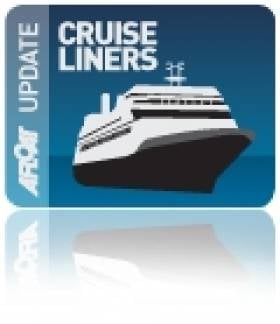Displaying items by tag: Irish Cruises 2012
Drogheda Port to Become New Cruiseship Destination
#CRUISE LINERS- In a first for Drogheda Port, the cruiseship, Clipper Adventurer (1975/4,367grt) is to call next May, and will represent a new business to the port as part of its circumnavigation of the island of Ireland, writes Jehan Ashmore.
The 101m long vessel will bring 236 American and Canadian visitors and a 65 crew, on a cruise organised by Adventure Canada, in association with Royal Canadian Geographical Society.
During the 10-day circumnavigation, the vessel will make calls to the Co. Louth port with passengers touring the Boyne Valley, The Skelligs, Aran Islands, the Gardens on Garnish at Glengariff and Tory Island. They will take in the history, archaeology, bird and marine life, culture, and Irish music in addition to a lecture programme from an on board team.
"With its downtown location, Drogheda Port is perfect for us," says Matthew Swan, president of Adventure Canada.
Last year, Swan visited Drogheda to conduct research for the cruise trip around Ireland. "I heard about your Graffiti and Samba Festivals before coming to town. It seemed like my kind of place, I'm definitely coming back for the Samba event."
Nessa Lally of Drogheda Port commented on the launch of the port as a new cruise destination: "Drogheda Port Company is pleased to announce the inaugural visit of the Clipper Adventurer to our port. This is the beginning of something special for Drogheda and the Boyne Valley.
The area has tremendous potential as a regular cruise destination with world class and potential world class attractions such as Newgrange, Slane Castle, Beaulieu House, the Battle of the Boyne site, the Hill of Tara and medieval Drogheda town itself, to mention just a few.
We will very much welcome the Clipper Adventurer and its passengers to our port and town and intend to give them a memorable visit to our locality. The port company has also commenced a dialogue with a number of interested parties to build and brand a full local itinerary for attracting and growing cruise business and tourism."
In the same month of the inaugural cruise, Drogheda will host a second cruise also by Clipper Adventurer, with Danish passengers organized through Copenhagen-based tour operator, Albatros Travel. They will undertake a 10-day Irish and Scottish itinerary that finishes in Bergen, Norway.
Clipper Adventurer is an exploration vessel which otherwise is often found cruising in polar waters, either Antarctica or the Arctic from Spitsbergen through Iceland, Greenland and Canada's Northwest Passage.
Over the last decade she has called to several Irish ports to include a once-off call to Arklow, where the Serbian-built vessel anchored offshore.





























































